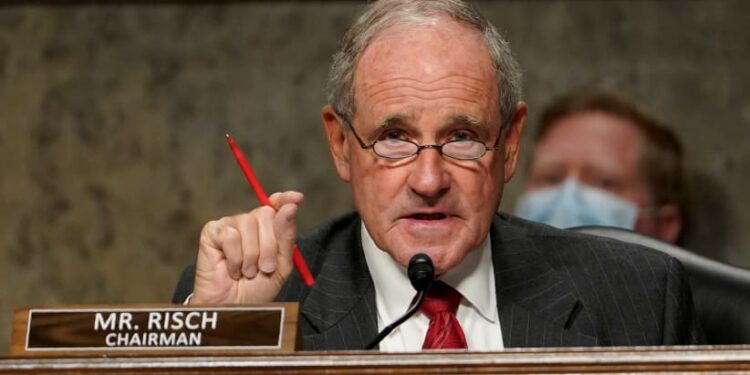U.S. Senator Pressures Treasury to Link IMF Support for Ghana to $251 Million Debt Repayment to American Companies
Ranking Member of the U.S. Senate Committee on Foreign Relations, Senator James Risch, has urged Treasury Secretary Janet Yellen to use the United States’ influence as the largest shareholder in the International Monetary Fund (IMF) to push for Ghana’s repayment of debts owed to American entities.
In a formal letter, Senator Risch highlighted Ghana’s arrears of approximately $251 million to several U.S.-based companies, including Twin City Energy, American Tower Company, GSM, Chubb, Kosmos Energy, and Zipline. He expressed concerns that these unpaid debts have created significant financial strain on the affected businesses, with potential risks to their operations in Ghana.
“It is my understanding that the government of Ghana owes approximately $251 million in outstanding payments to American companies,” Senator Risch wrote. “These unpaid debts place substantial financial strain on U.S. businesses in Ghana and jeopardise their operations and investments.”
Conditional Support for IMF Assistance
Senator Risch cautioned against approving further IMF disbursements to Ghana without addressing these outstanding obligations. He warned that such a move could establish a harmful precedent for sovereign borrowers and undermine the interests of U.S. businesses abroad.
To address these concerns, the senator recommended making U.S. support for IMF assistance contingent on Ghana’s commitment to a concrete repayment plan. He also suggested that portions of IMF disbursements be earmarked to settle debts owed to U.S. entities.
“I urge you to direct our executive director at the IMF to make clear that U.S. support for further IMF assistance to Ghana will depend on a good faith effort to establish a concrete and enforceable repayment plan for the remaining outstanding arrears,” Senator Risch stated.
Broader Implications
The senator pointed out that two of the affected companies, Twin City Energy and Chubb, have investments backed by the U.S. International Development Finance Corporation (DFC). As a result, the arrears not only impact private businesses but also involve investments financed by U.S. taxpayers.
Risch emphasized that proceeding with IMF support without resolving Ghana’s debt obligations could undermine U.S. engagement with Ghana and exacerbate the country’s dependence on international financial assistance.
“Allowing the next disbursement without addressing these concerns deepens Ghana’s reliance on international assistance while neglecting its obligations to U.S. private-sector partners,” he cautioned.








